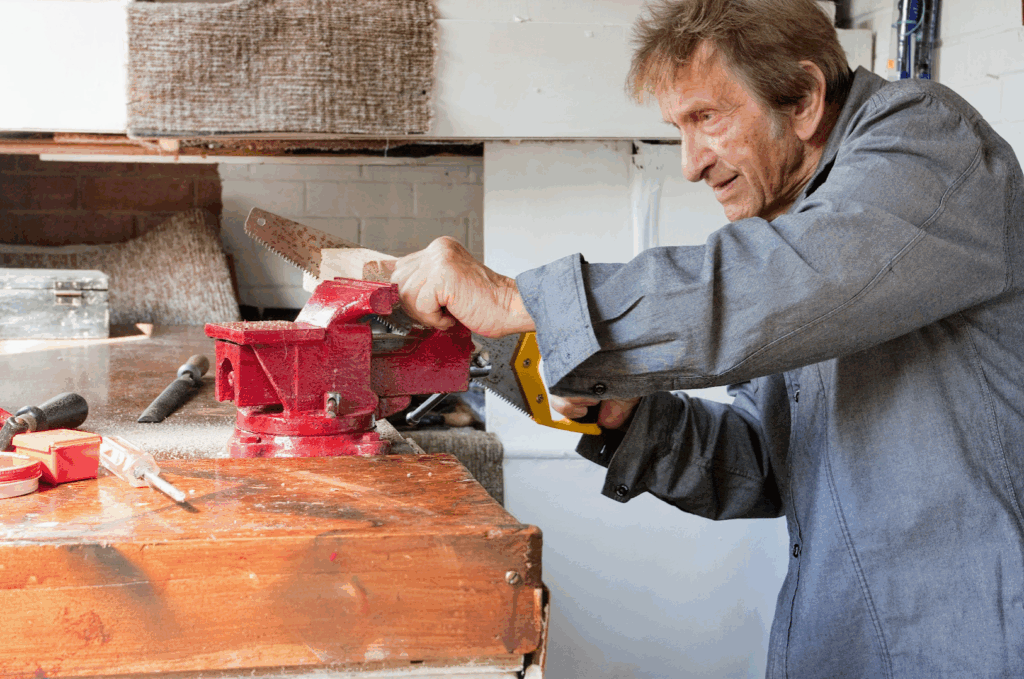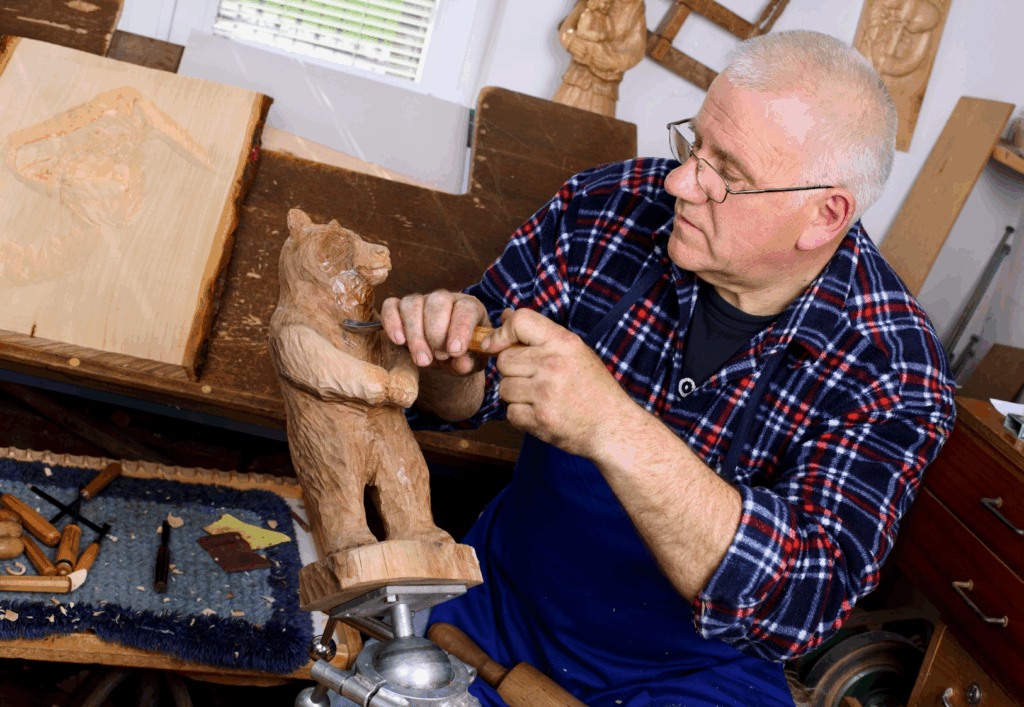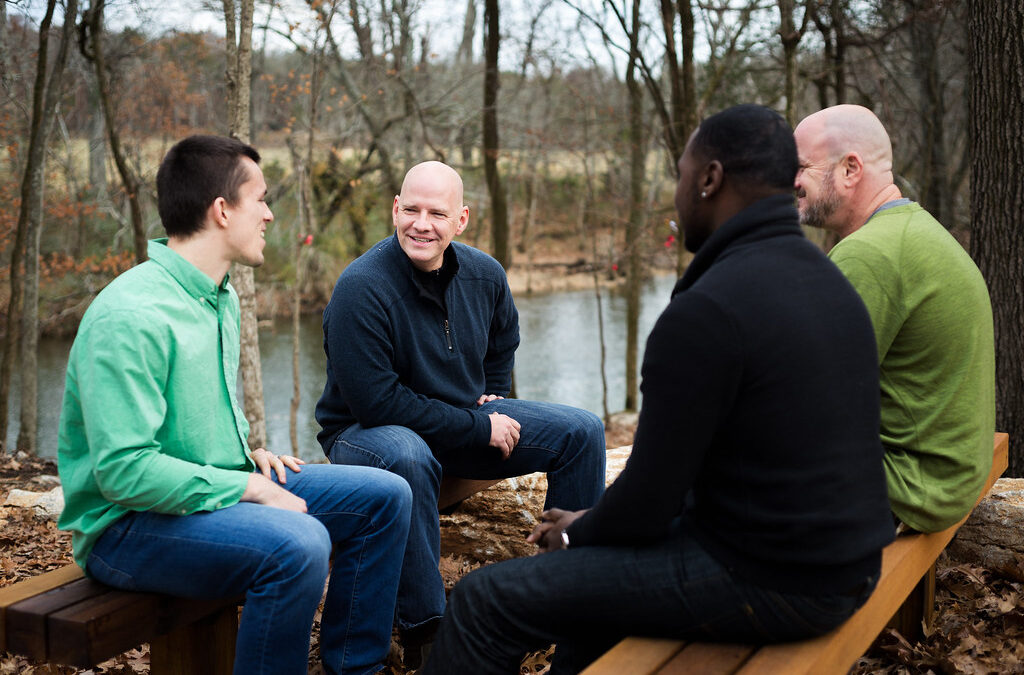Male isolation is a growing crisis among older men, but across Britain, workshops known as Men’s Sheds are becoming places of friendship, learning, and hope. We reveal how practical projects are creating powerful change.
In towns, cities, and quiet corners of the UK, the sound of conversation is mixing with the hum of power tools. In these unassuming workshops, often converted community halls or former garages, men reconnect in ways they may not have done for years. They’re sharing stories, fixing furniture, and repairing pieces of themselves.
These are Men’s Sheds, community-based hubs tackling one of the UK’s most silent epidemics: male loneliness.
Ian Stead, 68, Chairman of one of the Men’s Shed locations in Yorkshire, said: “We’ve all got mental illness, you know, and suffer from depression and things like that.
The best thing about it is the crack, the cups of tea, and the biscuits.”
Modelled after the solitary garden shed, but designed for connection, Men’s Sheds are practical workshops where older men, though increasingly diverse, come together to build, repair, and talk. Tasks vary: woodworking, electronics, and metal repairs. But the actual project is the community.
Ian said: “I retired, and as most men do, you have hopes and dreams of what you’re going to do but when you get too old and you’re not as fit as you used to be, a lot of the things you set out to do, you can’t fulfil.”
His turning point came with a suggestion from his daughter to join a local Men’s Shed. “I was just interested in going down and having a crack with the other boys. I’m not a craftsman in any way, but I’ve always been into DIY.”
The stakes behind this growing movement are high. Loneliness and isolation have been recognised as public health threats on par with obesity and smoking. In the UK, older men are among the most at-risk and are less likely to maintain social connections or seek support. Retirement often removes structure, identity, and regular human contact.
Ian said, “One of the hardest things is trying to get people who feel lonely or vulnerable through the door because men are so reluctant to get the help they need.”
The Men’s Shed model has exploded since arriving in the UK from Australia in 2013. From just 30 sheds, there are more than 1,100 across the UK, supported by the UK Men’s Sheds Association (UKMSA), a national charity that helps new sheds get started and stay sustainable. Every week, over 33,000 men and women attend.
If you’re enjoying reading this article, why not check out this article about a community combatting loneliness
The statistics are striking:
- 96% of members say they feel less lonely
- 89% report improvements in depression
- 97% say they’ve made new friends
- 39% of Sheds believe they’ve directly saved a life


Images courtesy of the Men’s Sheds Association
The UKMSA, which celebrated its 10th anniversary in 2023, aims to double the number of Sheds to 2,400 by 2031.
In Sheffield, where Ian helps run one of the city’s community sheds, people come for various reasons.
“There’s a bloke here, Trevor,” Ian said. “All he wanted to do was chop wood. He wasn’t bothered about making anything, just give him a palette and an axe, and he’d do it all day long.”
Others come for friendship or quiet support during hard times. “One of our members’ wives has been diagnosed with terminal cancer. He’s very emotional, but we support him as best we can, even just checking in, asking how he is.”
That everyday solidarity, what Ian calls “just talking things out”, makes the Sheds so powerful. During the COVID lockdowns, when isolation became a universal condition, the Sheffield group found ways to stay in touch.
“One of the guys, his wife had died 10 years ago, so during lockdown, he was all alone again. But we looked after him. Called him every day. He told us he’d lost his spark, so we looked out for him.”
It’s that culture of mutual care that keeps people coming back.
“Going to the Shed is something to look forward to,” Ian said. “It replaces the time I would’ve gone out to work. You’ve got people around you. No one’s judging you. You can just be yourself.”
Men’s Sheds are not group therapy, but they offer therapeutic space, low-pressure environments where laughter, banter, and compassion happen naturally. Ian sees it as a cultural shift that men his age were never taught to embrace.
“Male loneliness in my age group is partly down to how we were brought up,” he said. “We were told boys don’t cry, man up, have a stiff upper lip, all that rubbish. So one of the problems is we’ve never been able to show our emotional side.”
“But I’ve always been a tactile, emotional person. I don’t mind having a good cry now and again. Once you show that side to other men, it also helps them pull their barriers down.”
The Shed has also become a space for purpose, not just presence. Ian has helped special needs children build bird boxes. Others contribute by fixing items for residents or supporting each other through illness, grief, or significant life changes.
“Men’s Shed is also about bringing back purpose into our lives, now that our working days are gone,” Ian said. “Sometimes a bloke might come in and all he needs is a big hug. And you’ve just gotta say: ‘We’ve got you here, mate.’”
Recently, Ian’s Shed secured £20,000 in National Lottery funding, a vital boost for continuous development. Unlike many local groups, the Sheffield Shed rents from a private landlord, giving it independence from council funding structures.
The next challenge is growth, not just of buildings and equipment, but outreach. For Ian, that means reaching those who are isolated, invisible, or too proud to ask for help.
“We all feel s**t. But you need to get out and talk to someone,” he said. “My advice is to find somebody to talk to. Don’t bottle it up. It’s okay not to be okay.”
Men’s Sheds prove that ordinary people can spark extraordinary change through small and steady gestures of connection. Sometimes, it’s just about a brew, a birdhouse, and the feeling that someone’s glad to see you.



